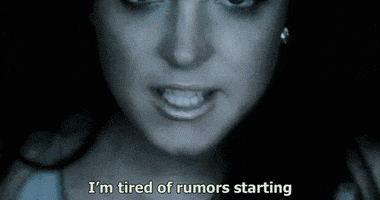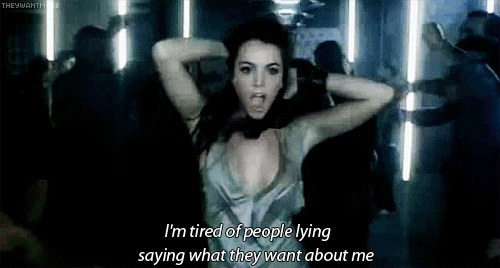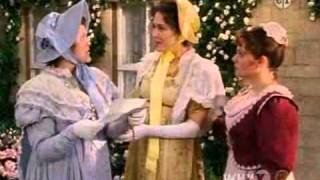
Reading Austen's Teenage Writings for JASP 2023 has us thinking about the stories that are consumed and created by younger readers and authors. In her juvenilia, Austen demonstrates a keen awareness of genre, and a clear - if sometimes mocking and exaggerated - interest in how people are supposed to behave and find a path to happiness. What do her mature works have to offer younger audiences?
With "Furst Impressions," Wishbone answers that very question. Wishbone is an half-hour children’s television show that aired on PBS from 1995-1997. The titular character is a Jack Russell Terrier who lives with his teenage owner, Joe Talbot. This well-read “little dog with a big imagination” daydreams about being the lead character from various classic stories. The list of books covered on the show includes well-known classics from Shakespeare through the nineteenth century. "Furst Impressions" is the second Austen adaptation the show attemped; "Pup Fiction" is their adaptation of Northanger Abbey. Wishbone’s dramatization of these stories parallels the dilemmas Joe and his friends are facing in their daily lives. Children’s adaptations of Austen's major novels, such as Wishbone’s clever rendition of Pride and Prejudice, engage young readers with universal issues that Jane Austen was grappling with in her writing from the juvenilia to the mature novels. This adaptation is less romance, more social commentary. In short, nothing to garner these reactions from little ones:

"Furst Impressions" enables us to consider the underlying issues of Austen’s work, going beyond the beautiful love story, costumes, elegant manners that adaptations often focus on. As in some of Austen’s Teenage Writings such as Lesley Castle, class consciousness and gossip is a main focus of "Furst Impressions." For example, in Lesley Castle, Margaret Lesley and Charlotte Luttrell's correspondence is filled with comments upon their mutual acquaintances' looks, bank rolls, intelligence, and fashion. As "Furst Impressions" makes clear, some things never change.
We’ll take a look at how a 30 minute episode from a children’s TV series manages to expertly tackle Austen’s social commentary in a way that is enjoyable and relevant for kids.

This episode follows the series' convention of Wishbone’s owner Joe and his friends, Samantha (“Sam”) and David having an experience that parallels the plot of the featured literary work. Joe and his friends plan to attend the school dance together, but their plan is ridiculed by the school bully, Damont. Damont approaches Joe and the gang belittles them for not having dates to the dance. Damont also criticizes Joe’s clothes.
In Wishbone's simultaneous Austen-inspired fantasy, the Bennets must also prepare for a dance. Mr. Darcy, Wishbone's alter ego for the dream, is described as being nervous at parties. Unfortunately, this apprehension amongst strangers comes off as rudeness. And Elizabeth Bennet is not impressed, especially when Darcy accidentally calls her "Ms. Beggar."

Caroline Bingley also makes a snooty comment about having had a dress just like Elizabeth’s three or four seasons ago.

In the real world Joe talks to his mother about getting new shoes. Ascertaining that Joe’s request is more about fashion than necessity, she comments “You don’t have to have expensive clothes to make people like you." This is similar to a comment by Elizabeth Bennet at the beginning of ‘Furst Impressions’. When Mrs. Bennet tells Jane that she must wear her best dress to the ball Elizabeth remarks that “how we dress will not matter in light of how we behave”.
Socially unacceptable attire takes a back burner when rumors fly as to who Sam and David are taking to the dance. This gossip causes a fracture in the tight-knit group. Just as Sam and David fall victim to malicious gossip, Elizabeth Bennet believes rumors about Mr. Darcy.
As in Austen's novel, the rumors are dispelled (spoiler alert: It was the bully Damont spreading untrue gossip.) The group of friends reconcile and enjoy the dance just as they are. This conclusion parallels Elizabeth’s eventual understanding with Darcy.
Keeping Up with the Bingleys
In ‘Furst Impressions”, Caroline Bingley is portrayed as exceedingly ridiculous and arrogant, almost a caricature of the mean girl in teen movies. This may have been intentional- no other social barriers are as shallow and rigid as those of high school. She pretends to trip over a guest, exasperatedly declaring country balls to be horrid and inferior to those in London. She hilariously tosses her pearls in a punch bowl. This portrayal of Caroline Bingley could have easily waltzed out of Austen’s juvenilia. She bears similarities to the dessert devouring, pastry-cook knocking, bonnet stealing The Beautiful Cassandra. The over-the-top physical comedy is reminiscent of the hijinks Austen portrayed in "The Visit," with guests piled on the laps of their hosts. Wishbone’s Caroline Bingley and many of Austen’s juvenilia characters are satirical characters meant to mock certain aspects of eighteenth century English society - like the alternately fainting Laura and Sophia in Love and Freindship.
How Does Your Garden Grow?

One of the most essential scenes in this adaptation shows Elizabeth and Mr. Darcy gardening. This garden scene symbolizes an equality between them despite their differences in social standing and financial status. They are in a natural, ‘earthly’ environment where rank and bank account don’t matter. Those man-made, ‘unnatural’ social barriers and class differences don’t exist. Gardening is also a representation of growth for both characters.
Dig A Little Deeper
As you read and study the juvenilia in preparation for JASP 2023, think about the connection between Austen as a child writer and children's adaptations of her work. What are the similarities between how Austen addressed the social background of eighteenth
century England in her juvenilia and how writers and producers illustrate the same for their young audience? Don't forget that Jane Austen Books has curated titles especially for JASP 2023, which you can order online (since they are not able to be with us at the symposium this year, you'll want to buy ahead of time!)








Comments